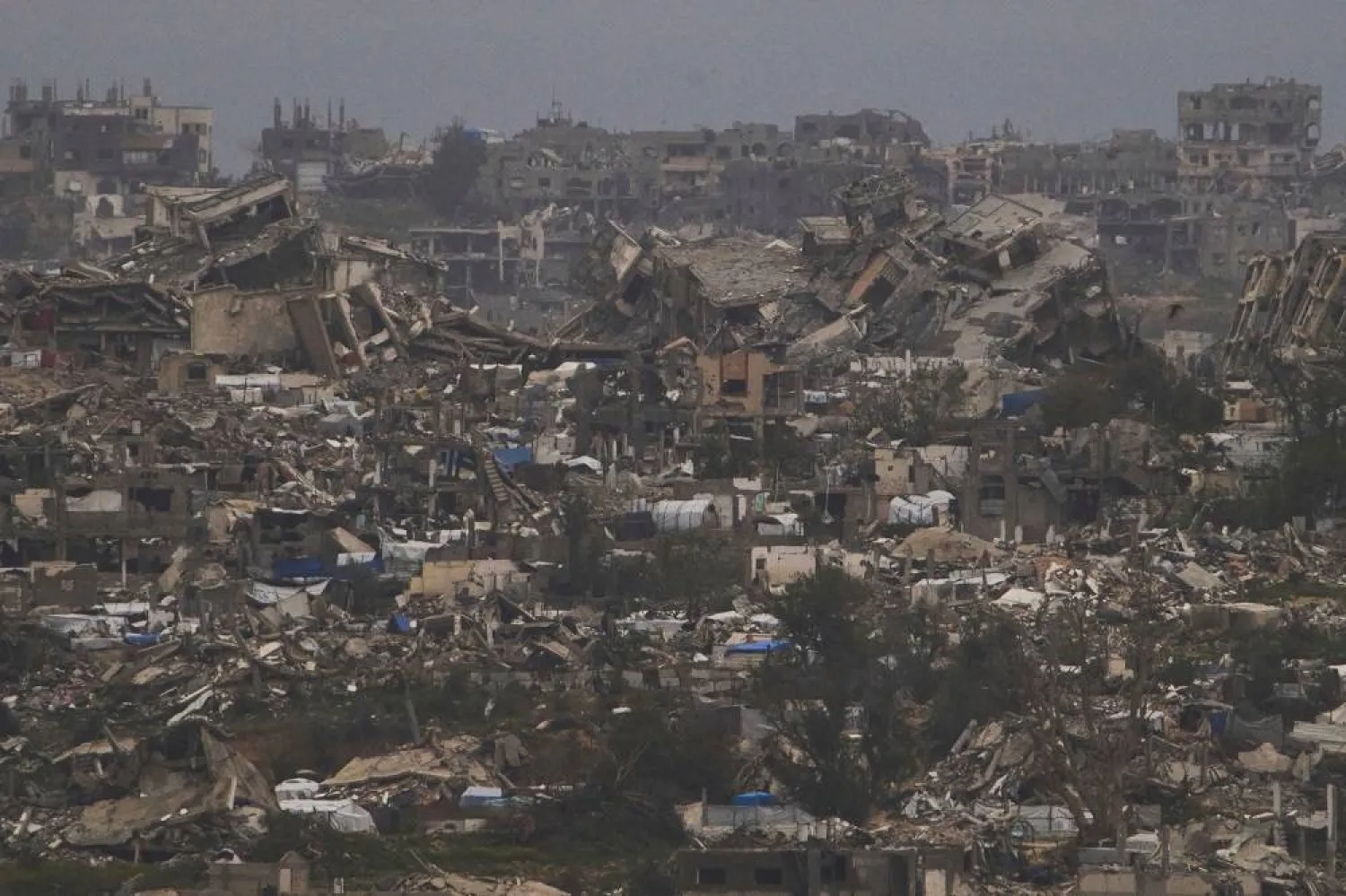Israel’s military operation in the Gaza Strip is expanding to seize "large areas," the defense minister said, while officials at hospitals inside the Palestinian territory said that Israeli strikes overnight and into Wednesday had killed more than 40 people, nearly a dozen of them children.
Israel’s offensive in the Palestinian territory was "expanding to crush and clean the area" of militants and "seizing large areas that will be added to the security zones of the State of Israel," Defense Minister Israel Katz said in a written statement.
The Israeli government has long maintained a buffer zone just inside Gaza along its security fence and has greatly expanded since the war began in 2023. Israel says the buffer zone is needed for its security, while Palestinians view it as a land grab that further shrinks the narrow coastal territory, home to around 2 million people.
Katz didn't specify which areas of Gaza would be seized in the expanded operation, which he said includes the "extensive evacuation" of the population from fighting areas. His statement came after Israel ordered the full evacuation of the southern city of Rafah and nearby areas.
Prime Minister Benjamin Netanyahu has said Israel aims to maintain an open-ended but unspecified security control of the Gaza Strip once it achieves its aim of crushing Hamas.
The minister called on Gaza residents to "expel Hamas and return all hostages." The group still holds 59 captives, of whom 24 are believed to still be alive, after most of the rest were released in ceasefire agreements or other deals.
"This is the only way to end the war," Katz said.
Since the breakdown of the ceasefire last month, when Israel ordered people to move and expanded their areas of operation, the "no-go" zones in Gaza now constitute more than 60% of the strip, said Olga Cherevko, a spokesperson for the UN Office for the Coordination of Humanitarian Affairs.
Aid groups are providing assistance as the situation allows, as supplies dwindled because of Israel’s monthlong blockade on Gaza. "No-go" zones include the military zone in the Netzarim corridor — a zone carved out by Israel separating northern from southern Gaza — and the expanded buffer zone and evacuation areas.
The Hostage Families Forum, which represents most captives’ families, said that it was "horrified to wake up this morning to the Defense Minister's announcement about expanding military operations in Gaza."
The group said the Israeli government "has an obligation to free all 59 hostages from Hamas captivity — to pursue every possible channel to advance a deal for their release." They stressed that every passing day puts their loved ones' lives at greater risk.
"Our highest priority must be an immediate deal to bring ALL hostages back home — the living for rehabilitation and those killed for proper burial — and end this war," the group said.
Children killed in strike on UN building
Israel continued to target the Gaza Strip, with airstrikes overnight killing 17 people in the southern city of Khan Younis. Another 15 people were killed in a strike in the north of the strip Wednesday, according to officials at hospitals where the bodies were taken.
Officials at the Nasser Hospital said the bodies of 12 people killed in an overnight airstrike that were brought to the hospital included five women, one of them pregnant, and two children. Officials at the Gaza European Hospital said they received five bodies of people killed in two separate airstrikes.
Later Wednesday, officials at the Indonesian Hospital said an Israeli strike on a building of the UN agency for Palestinian refugees, or UNRWA, in the Jabaliya refugee camp in the northern Gaza Strip killed 15 people, including nine children and two women.
The Palestinian Civil Defense said the building had been an UNRWA clinic that was now being used to house displaced people. It said the attack hit two rooms in the building, and that it evacuated the bodies of seven of those killed as well as 12 people who were wounded.
Juliette Touma, a spokeswoman for UNRWA, said the site wasn't functioning as a clinic when it was hit, but was being used as a shelter for displaced people, with about 735 people from 160 families staying there.
Despite UNRWA staff warning of the dangers of the facility after the Wednesday’s attack, many displaced families haven't left the site, "simply because they have absolutely nowhere else to go," Touma said, adding that no UNRWA staff were killed or wounded in the strike.
The Israeli military said it struck Hamas members in the area, adding that they were hiding inside "a command and control center that was being used for coordinating" armed activity and served as a central meeting point for the Palestinian group.
Separately, the European Hospital said that it had received the bodies of eight people killed in Khan Younis during the day Wednesday, while another three killed in Zawaida in central Gaza arrived at the Aqsa hospital, officials there said.
The war began when Hamas-led gunmen attacked southern Israel on Oct. 7, 2023, killing around 1,200 people, mostly civilians, and taking 251 hostages.
Israel’s offensive has killed more than 50,000 Palestinians, including hundreds killed in strikes since a ceasefire ended about two weeks ago, according to Gaza’s Health Ministry, which doesn’t say whether those killed are civilians or combatants. Israel says it has killed around 20,000 fighters, without providing evidence.









